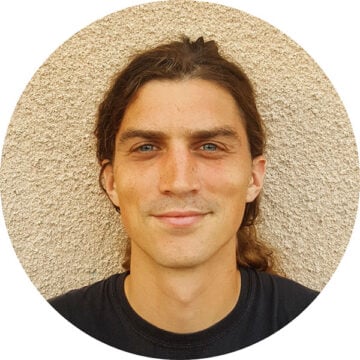Venue: BBS
Lien zoom : https://u-bordeaux-fr.zoom.us/j/8733956580
Thesis supervisor: Alexandre Zénon
Title
Cognitive effort, efficient coding and non-invasive fMRI measurement of their relation in sensorimotor responses
Abstract
Cognitive effort is a ubiquitous subjective feeling of exertion that pushes people to avoid demanding tasks. From a biological and evolutionary point of view, mental effort is thought to be a mechanism intended to preserve cognitive resources. However, so far, no consensus on the nature of these resources has been established. Since the brain functions as an information-processing organ, efficient coding theory suggests that cognitive resources — whatever their nature — are optimized and should depend on information gain.
This hypothesis assumes certain principles about neural coding and information processing. Firstly, we frame our work in the premise that the brain is a Bayesian information-processing machine, that updates internal models through inferences between inputs and previous beliefs. If stimuli are familiar and naturalistic, efficient neural coding can take place to optimize information coding and processing. If these conditions are met, then we can estimate the quantity of information computed by the brain as the relative entropy between prior and posterior beliefs, or information gain; moreover the quantity of energy needed to compute information being optimized, energy spent on a task should be proportional to this same quantity.
Indirect measures of this relationship have been validated through pupillometry, as pupil size correlates with information rate during cognitive tasks. In this thesis, we designed experiments to further validate this information-theoretic framework, using complementary behavioral and neuroimaging measures. To assess this hypothesis, we conducted three key experiments : two joystick visuo-motor and oculo- motor tracking tasks with pupillometry, and a response-to-stimulus (Hick-Hyman) task in fMRI.
The first study investigates the relation between cognitive effort, pupil-size and continuous visual-motor prediction under this information framework. By controlling information components of the target, such as predictability, lag, speed and acceleration, we can validate the information origin of cognitive effort (NASA-TLX) and its correlation with pupil-size.
The second experiment was developed to test the overnight memorization and implicitness of eye and hand continuous tracking. Using the same design as in the first experiment, we ran four experimental sessions, divided in joystick and eye tracking, on two consecutive days. We showed that participants implicitly learned to better predict repeating parts of the trajectory, which resulted in better performance and smaller pupil dilation.
The last study was designed to investigate the relationship between information processing and energy dissipation in the brain by quantifying the cerebral metabolic rate of oxygen (CMRO2) during a response to stimulus task in fMRI (BOLD-ASL sequence). Hick-Hyman task maps a different number of stimuli to their response buttons, depending on the complexity (entropy) of the trial or block. As a linear relationship exists between the quantity of information processed (entropy) and the performance (response time) during the task, we hypothesized that there should be a similar relation between the quantity of information needed to accomplish a task and the energy allocated to do so. We addressed multiple technical issues related to CMRO2 computation in a cognitive task context. While we have improved and automatized the data analysis pipeline, we faced significant challenges that prevented us to reach a final conclusion on our initial hypothesis.
Keywords: cognitive effort, information theory, visuo-motor tracking, implicit learning, CBF, fMRI, CMRO2
Publication
An information-theoretic measure of prediction during implicit learning of a quasi-sequential visuomotor tracking task
Jury
- Pr. Julie Duqué (UCLouvain, Bruxelles)
- Pr. María Asunción Fernández Seara (Université de Navarre, Pampelune)
- Pr. Emmanuel Barbier (Institut de Neurosciences de Grenoble), Dr. Matthew Chalk (Institut de la vision, Paris)
- Dr. Gaël Jobard (Université de Bordeaux).


